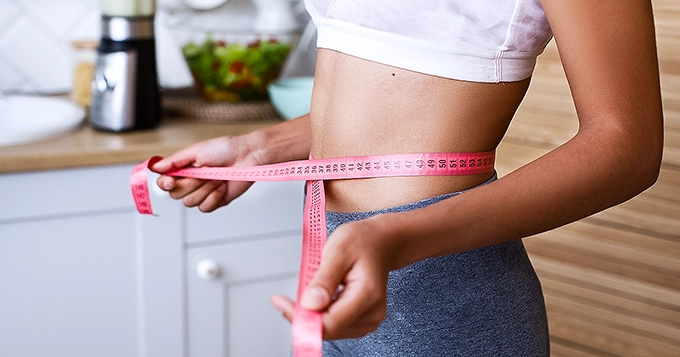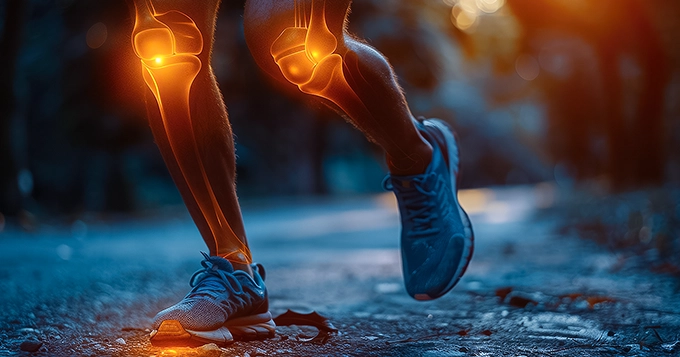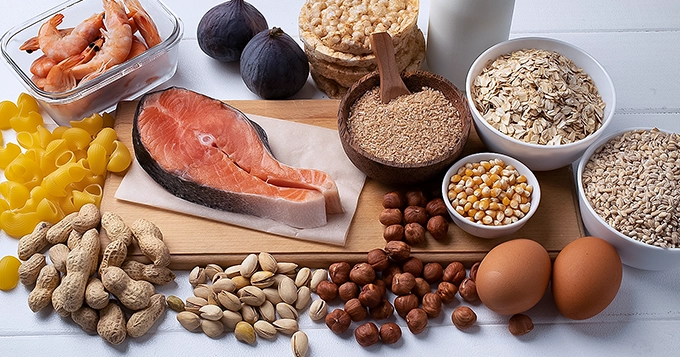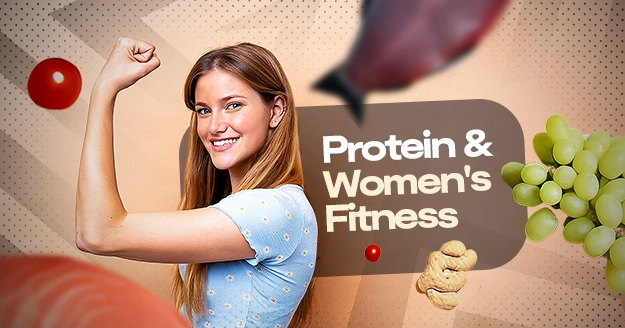Understanding Protein Needs for Women
The building blocks found in protein, known as amino acids, play a vital role in constructing various components of the female body, ranging from muscles to cells. Our bodies continuously break down and replace protein, emphasizing the importance of replenishing it through dietary sources or supplements.
Our bodies constantly need protein, and when we don’t get enough, they search for it elsewhere. Inadequate protein intake can lead to muscle loss. This is something we’d want to steer clear of because having enough muscle is crucial for things like keeping our minds sharp, regulating insulin levels, maintaining healthy inflammation levels, and other important functions.
Understanding protein needs for women is essential for optimizing health, fitness, and athletic performance.
Key Points on Protein for Women:
- Recommended Daily Intake (RDA): The RDA for protein (the minimum amount needed to avoid nitrogen imbalance) is 0.8 g per kilogram of body weight daily. However, for optimal health, protein requirements for physically active women are 1.2 to 2.0 g/kg of body weight or 0.54 to .90 grams per pound.
- Protein quality is just as important as quantity: The quality of protein impacts how effectively our bodies can use it for various functions.
- Individual demands for protein vary per individual: The optimal protein intake varies based on factors like weight, activity level, genetics, and individual health conditions. Individuals with kidney damage may require a lower-protein diet to manage their condition effectively.
Proteins Impact on Women’s Physique and Athletic Performance
Here’s a closer look at how proteins impact women’s physique and athletic performance:
- Muscle Growth and Repair
Engaging in physical activity, whether lifting weights, running, or practicing yoga, stresses the muscles. Protein consumption provides the amino acids needed to repair and rebuild your muscle tissues, leading to muscle growth and strength development. This process is essential for women looking to tone their bodies and improve muscle function effectively.
- Hormonal Balance
Proteins are involved in the synthesis of neurotransmitters, enzymes, and hormones that regulate various physiological processes in your body. Hormonal balance is crucial for women’s health, particularly concerning reproductive function and stress management. Adequate protein intake supports hormonal balance, which can positively impact overall well-being and athletic performance.
- Enhanced Recovery
Intense workouts can leave muscles feeling fatigued and sore. Protein consumption post-exercise aids in the replenishment of glycogen stores and promotes faster muscle recovery. This means less downtime between workouts, allowing women to maintain consistent training schedules and progress toward their fitness goals more efficiently.
- Optimal Body Composition
Protein can also help you achieve and maintain a healthy body composition.
Unlike fats and carbs, protein has a higher thermic effect.
What does this mean?
It means the body expends more energy, digesting and metabolizing protein. As a result, incorporating protein-rich foods into meals can help women feel fuller for longer periods, curb cravings, and support weight management efforts.
- Immune Support
Protein is vital for the proper functioning of the immune system. Many immune cells, antibodies, and cytokines rely on proteins for their structure and function. By consuming an adequate amount of protein, women can bolster their immune defenses, reducing the risk of illness or infection that could disrupt their training routines.
- Improved Endurance and Performance
Proteins contribute to the synthesis of enzymes and hormones involved in energy production and muscle function. For women participating in endurance sports like long-distance running or cycling, sufficient protein intake can enhance stamina, delay fatigue, and optimize performance during prolonged physical activity.
- Bone Health
While often associated with calcium, protein also plays a role in maintaining bone health. Adequate protein intake is necessary for synthesizing collagen, a protein that makes up the structural skeleton of bones. Strong bones are essential for overall athletic performance and reducing the risk of fractures or injuries, especially as women age.
- Builds lean muscle mass
Bodybuilders have a strong affinity for protein, but it’s important to understand that consuming enough protein won’t automatically result in the bulky physique associated with heavy lifters. Achieving bulky muscles requires not just protein intake but also dedicated exercise and an overall proper diet.
Protein mostly helps strengthen the muscles you already have. Optimizing female protein intake to build muscle is key for women looking to increase their strength, tone their bodies, and reach their athletic aspirations.
- Essential for Body Weight Management
Having more muscle helps you burn some calories even when you are not active. Since protein helps build muscle, it also boosts calorie burn and promotes weight loss.
Studies have found that protein increases feelings of fullness. After consuming a meal high in protein, individuals often feel satisfied because their satiety hormones increase. When you’re not constantly battling hunger, it becomes simpler to opt for nutritious foods, which in turn facilitates weight loss.
- Improves Hair Health
Proteins are not only beneficial for muscle repair and growth but also for maintaining healthy hair. Hair strands are primarily composed of keratin (a type of filament protein), and adequate protein intake ensures the body has the necessary building blocks to support hair growth and strength. Including protein-rich foods in the diet can help women achieve luscious locks and prevent issues like breakage and hair loss.
- Improves Nails
Just like hair, nails are also made up of keratin protein. Consuming enough protein supports the growth and strength of nails, helping to prevent brittleness, splitting, and other common nail problems. Women who prioritize protein intake may notice an improvement in the health and appearance of their nails, contributing to an overall polished and well-groomed appearance.
- Energy Production
Protein plays a role in energy production, especially during prolonged physical activities. While carbohydrates are the body’s primary source of energy, protein can be converted into glucose when carbohydrate stores are depleted. Adequate protein intake can help sustain energy levels and delay fatigue. This is particularly relevant for endurance athletes or women engaging in prolonged workouts.
Incorporating Protein into Your Diet:
Women should aim to include protein-rich foods in their every day diets to meet their protein requirements and reap the benefits of protein for physique and athletic performance.
Excellent sources of protein include lean meats, poultry, eggs, fish, dairy products, legumes, nuts, and seeds. Protein supplements such as whey protein powder or plant-based protein powders can also be convenient options for meeting increased protein needs, particularly for active individuals with busy lifestyles.
It is helpful to spread protein intake evenly throughout the day, including it in meals and snacks to support muscle protein synthesis consistently.
Conclusion
In conclusion, proteins are indispensable for women striving to achieve their fitness objectives and excel in athletic endeavors. By prioritizing female protein intake and incorporating it into their nutrition plan, women can optimize their physique, enhance their athletic performance, and support overall health and well-being for a strong and resilient body.










